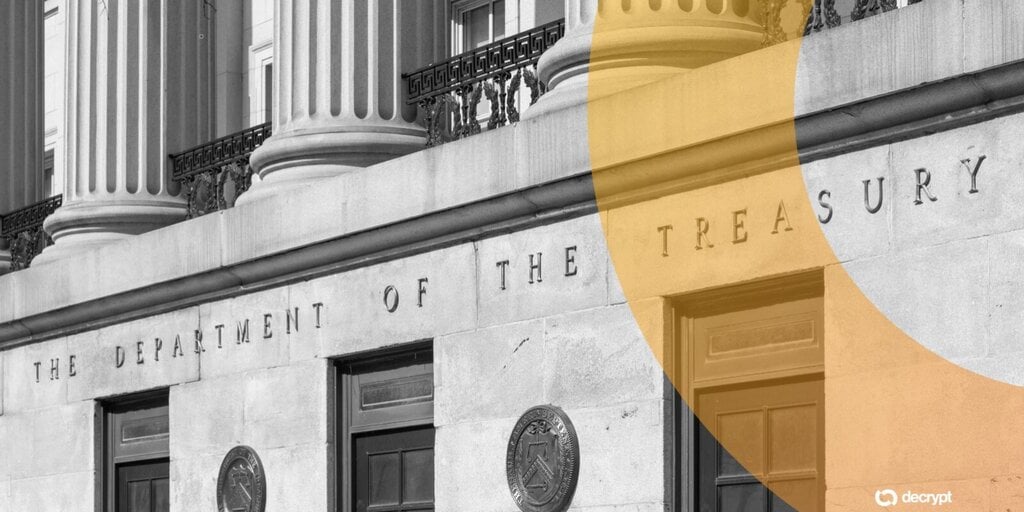
In brief
- Samurai Wallet founders Keonne Rodriguez and William Lonergan Hill face sentencing this week after pleading guilty to operating an unlicensed money transmitter.
- Prosecutors allege the defendants actively solicited criminals on dark web forums, with Rodriguez describing their service as “money laundering for bitcoin” in private messages.
- The government identified at least $237 million laundered through the crypto mixer, according to the filing.
The U.S. government seeks a statutory maximum five-year prison sentence for both founders of Samourai Wallet, alleging they deliberately built and marketed a crypto mixing service as a haven for criminals to launder hundreds of millions of dollars in illicit proceeds.
In a sentencing memorandum filed Friday at the U.S. Attorney’s Office for the Southern District of New York, prosecutors said Keonne Rodriguez and William Lonergan Hill “repeatedly solicited, encouraged, and invited criminals” to use their platform to conceal illicit funds.
The case is one of the government’s most aggressive prosecutions of crypto developers to date.
Between 2015 and April 2024, when authorities shut down the service, the government identified at least $237 million in criminal proceeds laundered through Samourai, according to the filing.
Rodriguez and Hill pleaded guilty in July to conspiracy to operate an unlicensed money transmitting business involving funds known to be derived from criminal activity, admitting that criminals were using Samourai to launder drug trafficking and hacking proceeds.
In exchange, prosecutors dropped three more serious charges: conspiracy to commit money laundering, conspiracy to commit sanctions violations, and federal licensing violations, each of the first two carrying potential 20-year sentences.
Rodriguez’s sentencing is scheduled for November 6 at 11:00 a.m. ET, with Hill’s the following day.
Prosecutors say the pair actively courted illicit users, calling them “not mere bystanders,” and alleged they marketed Samourai for laundering.
The government’s filing cites a 2018 WhatsApp chat in which Rodriguez called mixing “money laundering for bitcoin.” In 2020 and 2023, Hill allegedly promoted Samourai on dark web forums by claiming it would be “cleaning dirty Bitcoin” and making it “untraceable.”
The defendants collected over $6.3 million in fees from Samourai transactions, approximately 246.3 BTC, worth roughly $26.9 million today due to Bitcoin’s appreciation, per the filing.
The criminal proceeds traced through Samourai originated from darknet markets, including Silk Road and Hydra, multiple crypto exchange hacks, child sexual abuse material distribution sites, murder-for-hire plots, and sanctioned entities in Iran, Russia, and North Korea, the filing reads.
The probation office recommended 42 months for each defendant, but prosecutors are seeking the full five-year term, the maximum allowed under 18 U.S.C. § 371, which covers conspiracy to operate an unlicensed money-transmitting business.
The case shadows similar instances in which prosecutors and officials have targeted mixers through sanctions and regulatory pressure.
In August, Tornado Cash developer Roman Storm was convicted of conspiracy to operate an unlicensed money transmitter, though jurors deadlocked on money laundering and sanctions evasion charges, potentially setting up a retrial on those counts.
The U.S. Treasury Department sanctioned the mixer in August 2022, claiming $7 billion had been laundered through the protocol since 2019, with frequent use by North Korea’s Lazarus Group hackers.
Though those sanctions were later deemed unlawful and lifted, the criminal cases against both crypto mixer developers went ahead, raising concerns among privacy advocates about whether building open-source anonymity tools itself constitutes criminal conduct.
Daily Debrief Newsletter
Start every day with the top news stories right now, plus original features, a podcast, videos and more.




